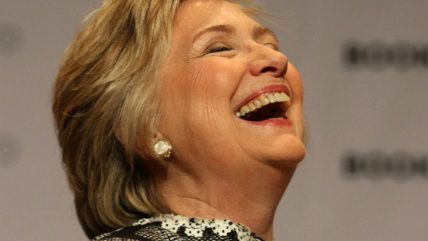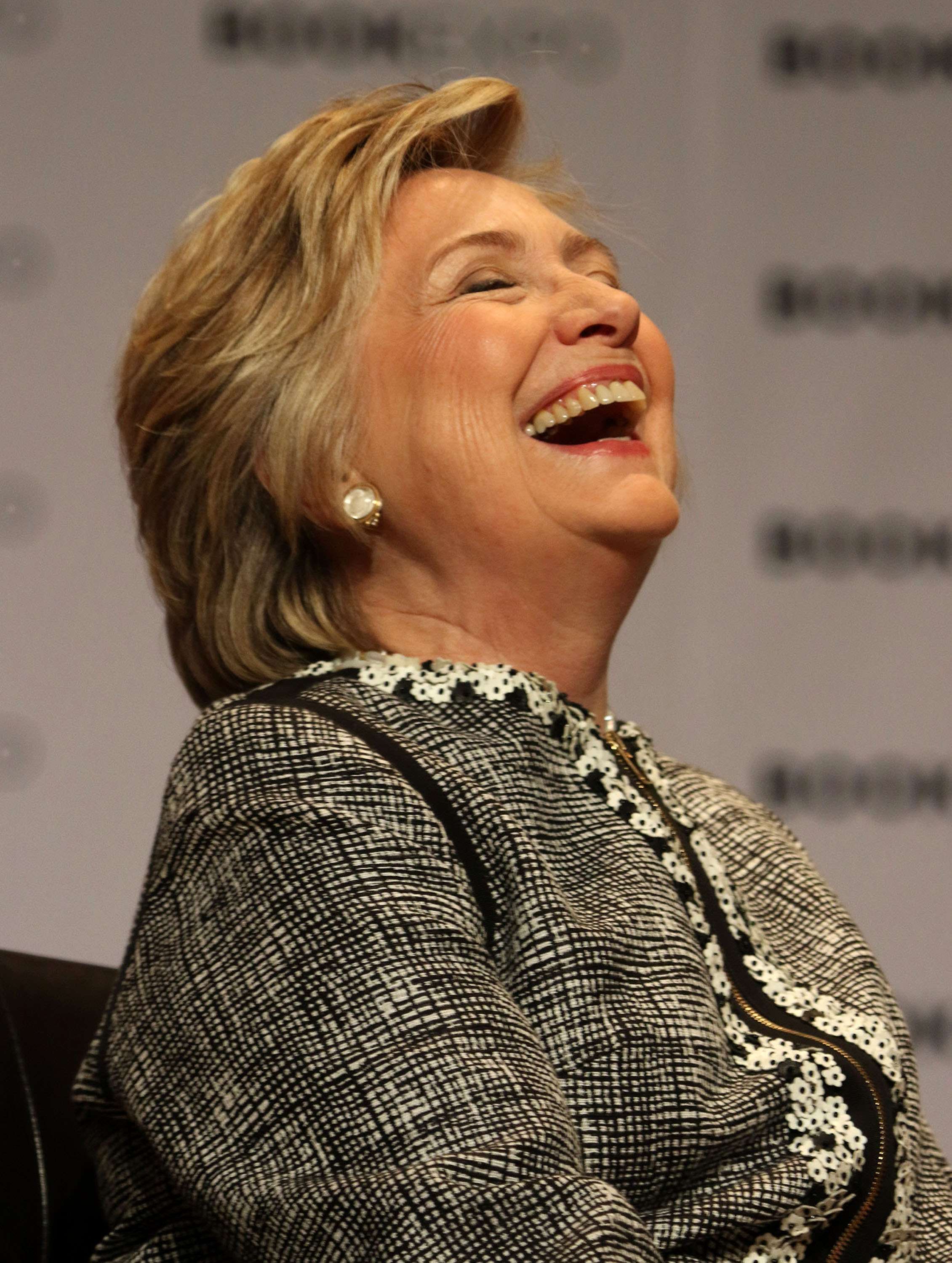Mueller Probe Could Set the Stage For Hillary's 2020 Return
Robert Mueller's investigation into Russian influence on the 2016 presidential election could take the blame off Clinton for losing.


Robert Mueller's investigation into Russian influence on the 2016 presidential election is both a preview of Hillary Clinton's 2020 presidential campaign and a re-run of the insider-trading litigation of the past decade. It's a preview of the 2020 presidential campaign, because blaming the outcome of the election on illegal Russian interference takes the blame off Clinton for losing.
Clinton can already point out that she won the popular vote in 2016. If her electoral vote loss was the result of foreign interference—rather than, say, a poorly managed campaign, or a candidate who couldn't connect with out-of-work coal miners, or the wrong substantive message—then perhaps a 2020 replay, without foreign interference, might yield a different outcome. It's the difference between, "you had your shot fair and square, now move aside and let the next person have their turn," and "we never even really got a chance to see what would have happened if we had had a fair election that hadn't been subject to illegal Russian manipulation."
She wouldn't be the first presidential candidate to need multiple chances to win. Reagan lost in 1976 and won in 1980. Nixon lost in 1960 but won in 1968.
Hillary Clinton's daughter, Chelsea, is out with a children's book titled "She Persisted: 13 American Women Who Changed The World." Though the "nevertheless, she persisted" phrase comes from Sen. Mitch McConnell's description of Sen. Elizabeth Warren, it could easily be adopted by Hillary Clinton as an informal slogan for a third presidential run.
It's not unreasonable that it would take three tries, rather than two, to be the first woman president. In some ways, having done it before might even help. She starts with a large donor list and high name recognition. Trying again would underscore Clinton's personality strengths—doggedness, her ability to bounce back from setbacks like her husband's impeachment and her own 2008 loss to Barack Obama.
Some might raise age as an issue, but Clinton is younger than Trump.
For a sense of how the Clinton 2020 reasoning and the Mueller investigation are related, keep an eye on the timing. If the probe delivers results long enough before the 2020 primary season for Clinton to get a campaign in gear, watch out. If findings don't emerge until later, then they won't be much use to her.
As for the insider trading investigations, some of the key characters are the same. Mueller and James Comey both led the FBI as it pursued the insider trading investigations. Preet Bharara, who as the top federal prosecutor in Manhattan led the insider trading charge, attended the recent Comey hearing on Capitol Hill and has been avidly commenting about the whole thing on Twitter.
As with insider trading, unauthorized leaks to the press about the investigations are an issue. As with insider trading, there's a risk of operating the whole thing backward—starting with targets and theories, then proceeding to evidence gathering.
In the insider trading cases, it was rich hedge fund managers who were targeted by prosecutors who had already decided that insider trading was widespread. In the Russia probe, it is the president and his circle of advisers who are being targeted by prosecutors who have already decided that Russia improperly influenced the American election. In both instances, the warnings of Attorney General Robert H. Jackson in his classic 1940 speech titled "The Federal Prosecutor" apply.
Jackson, who later became a Supreme Court justice, warned that the "most dangerous power of the prosecutor" is "that he will pick people he thinks he should get, rather than pick cases that need to be prosecuted." Jackson said, "It is in this realm—in which the prosecutor picks some person whom he dislikes or desires to embarrass, or selects some group of unpopular persons and then looks for an offense, that the greatest danger of abuse of prosecuting power lies."


Show Comments (111)